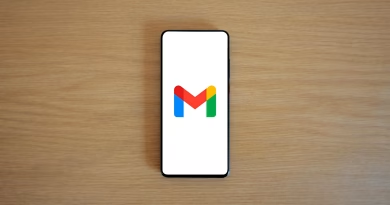5G vs. Fiber Optic Internet: Which One is Better for Your Home?
The battle for the future of home internet is here, and it’s being fought between two incredibly powerful technologies: the lightning-fast reliability of Fiber Optics and the revolutionary wireless convenience of 5G.
For years, cable was the default choice for most homes. Now, both fiber and 5G are expanding rapidly, offering faster speeds and much-needed competition. But they deliver their service in fundamentally different ways, each with its own unique set of strengths and weaknesses.
If you’re lucky enough to have both options available in your area, which one should you choose? We’re breaking down the ultimate showdown between 5G and Fiber to help you decide.
Round 1: Speed
This is the most talked-about metric, but it’s more nuanced than just the maximum download speed.
- Fiber: Fiber optic internet is the undisputed speed king. Because it uses light traveling through glass cables, it can offer symmetrical speeds, meaning your upload speeds are just as fast as your download speeds. It’s common to see plans offering 1 Gigabit (1,000 Mbps) or even 2 Gigabit speeds for both downloads and uploads.
- 5G: 5G Home Internet offers excellent download speeds, often ranging from 100 Mbps to 1 Gbps, which is more than fast enough for most households. However, its upload speeds are significantly lower (asymmetrical), typically falling in the 10-30 Mbps range.
Winner: Fiber. While both are incredibly fast, fiber’s symmetrical speeds make it superior, especially for tasks like uploading large video files, streaming on Twitch, or making high-quality video calls.
Round 2: Latency
Latency, or “ping,” is the delay it takes for data to travel from your device to a server and back. For most activities, you won’t notice it. For online gaming, it’s everything.
- Fiber: A wired fiber optic connection offers ultra-low and incredibly stable latency, often between 5-15 milliseconds (ms).
- 5G: As a wireless technology, 5G naturally has higher latency. While it’s a massive improvement over 4G and old satellite tech, the latency is still more variable, typically ranging from 20-50ms.
Winner: Fiber. For competitive, fast-paced online gaming where every millisecond counts, the low and stable latency of a wired fiber connection is unbeatable.
Round 3: Reliability and Consistency
How consistent is your speed, and how often does the connection drop?
- Fiber: A physical fiber optic cable running directly to your home is incredibly stable and immune to most forms of interference. Its performance is highly consistent, regardless of the weather or how many people in your neighborhood are online.
- 5G: A wireless signal is inherently less stable than a wire. The performance of 5G Home Internet can be affected by your distance from the cellular tower, physical obstructions like buildings and trees, extreme weather, and network congestion (your data may be deprioritized in favor of mobile users during peak times).
Winner: Fiber. It’s simply the most reliable and consistent internet technology available today.
Round 4: Cost and Convenience
This is where the battle gets interesting.
- Fiber: Fiber optic internet requires a professional installation where a technician runs a physical line to your house. The monthly cost can sometimes be higher, and it is only available in areas where the provider has invested in laying the physical infrastructure.
- 5G: 5G Home Internet is the king of convenience. You get a box in the mail, plug it in, and you’re online in 15 minutes. The pricing is often a simple, flat monthly fee with no contracts or hidden charges, making it very competitive.
Winner: 5G. The ease of setup, lack of contracts, and competitive pricing make it a more convenient and often more affordable option.
The Verdict: Which One Should You Choose?
The decision comes down to your priorities and what’s available at your address.
- You should choose Fiber if: You are a power user, a serious online gamer, a streamer, or a creative professional who needs the absolute best performance possible. If you require symmetrical upload speeds and the lowest possible latency, fiber is the undisputed champion. If it’s available in your area and fits your budget, it is the best internet technology you can get.
- You should choose 5G if: You are a typical home internet user whose primary activities are streaming 4K video, Browse the web, and remote work. If you live in an area with poor wired internet options or are fed up with your local cable monopoly, 5G is a fantastic and cost-effective alternative. Its performance is more than enough for the vast majority of households.




